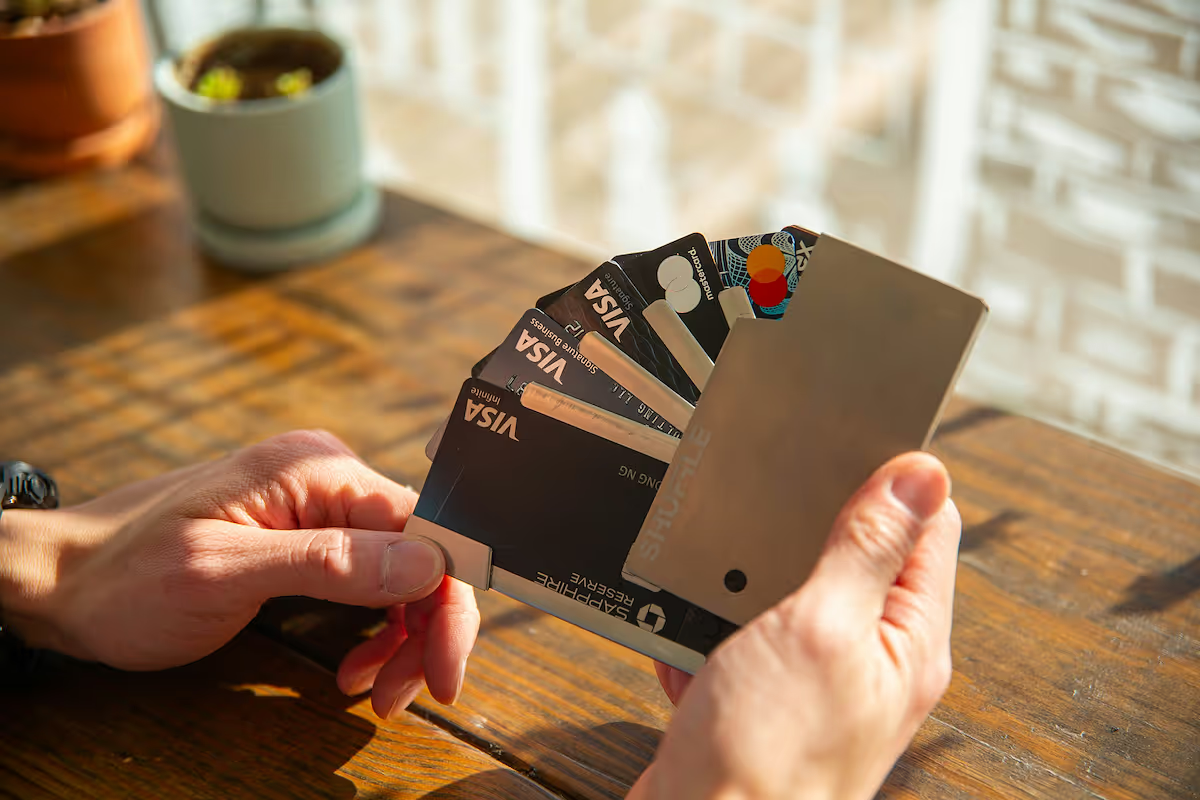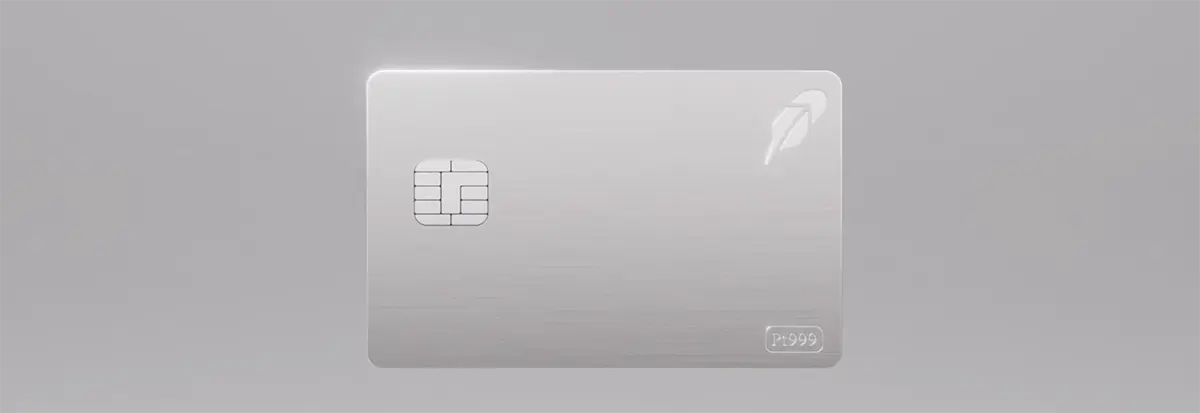
Kudos has partnered with CardRatings and Red Ventures for our coverage of credit card products. Kudos, CardRatings, and Red Ventures may receive a commission from card issuers. Kudos may receive commission from card issuers. Some of the card offers that appear on Kudos are from advertisers and may impact how and where card products appear on the site. Kudos tries to include as many card companies and offers as we are aware of, including offers from issuers that don't pay us, but we may not cover all card companies or all available card offers. You don't have to use our links, but we're grateful when you do!
Does Maxing Out Your Credit Card Affect Your Credit Score?
July 1, 2025


Quick Answers
Maxing out your credit card will almost certainly lower your credit score by driving your credit utilization ratio to 100%, a key factor that accounts for a significant portion of your score.
Lenders interpret a maxed-out card as a sign of potential financial instability, which can negatively impact your ability to secure future loans or favorable interest rates.
While paying down the balance will improve your utilization and help your score recover, the negative mark from a maxed-out card can linger on your credit report.
What Does It Mean to Max Out a Credit Card?
Maxing out a credit card means you have used the entire credit limit extended to you by the issuer. For instance, if your card has a $5,000 limit, a maxed-out card would have a balance of $5,000. This leaves you with no available credit for any additional purchases or transactions on that account.
This action directly relates to your credit score through a metric called the credit utilization ratio, which compares your balance to your credit limit. A maxed-out card has a utilization ratio of 100% for that specific account. Credit scoring models weigh this ratio heavily, and a high utilization can significantly influence your overall score.
How Maxing Out Your Credit Card Can Impact Your Credit Score
Maxing out your credit card can significantly harm your credit score. This action triggers a chain reaction, signaling financial distress to lenders and impacting key components of your credit report.
- Immediate Spike in Credit Utilization: Your credit utilization ratio—the amount of credit you're using compared to your total available credit—is a major factor in your score. Maxing out a card pushes its individual utilization to 100%, which is a significant red flag.
- Overall Utilization Ratio Increases: This single maxed-out card raises your aggregate utilization across all revolving accounts. Lenders prefer to see this ratio below 30%; a high overall ratio suggests you may be overextended and reliant on debt.
- Credit Score Takes a Hit: Scoring models like FICO and VantageScore heavily weigh credit utilization. A high ratio indicates increased risk, almost certainly causing your credit score to drop. The higher the utilization, the more significant the potential score decrease.
- Increased Risk of Missed Payments: A maxed-out balance means a higher minimum payment. If you struggle to make this payment on time, a late payment will be reported, causing further, more severe damage to your credit score.
How Much Will Maxing Out Your Credit Card Affect Your Credit Score?
The exact number of points your credit score will drop depends on several factors. Here are the key elements that determine the severity of the impact:
- Credit Utilization Ratio: Maxing out your card pushes your credit utilization to 100%. Lenders view this as a significant risk, which can cause a substantial and immediate drop in your credit score.
- Overall Credit Profile: The impact varies based on your existing credit history. An established, positive history may see a smaller dip, while a thin or new file will likely experience a more severe drop.
- Payment History: Even with a maxed-out card, making on-time payments is crucial. A single missed payment on a high-balance account will compound the negative effect and further damage your score.
How You Can Avoid Maxing Out Your Credit Card Affecting Your Credit Score
Monitor Your Balances Regularly
Make it a habit to check your credit card balance frequently, not just when the bill is due. This awareness helps you track your spending in real-time, ensuring you know exactly how much available credit you have left and preventing any surprises.
Maintain a Low Credit Utilization Ratio
Aim to use less than 30% of your available credit. Lenders view a low credit utilization ratio favorably. Keeping your balance well below the limit, not just avoiding the maximum, is a key strategy for protecting and improving your credit score over time.
Ways to Improve Your Credit Score
Improving your credit score is an achievable goal that plays a crucial role in your financial life. With consistent, positive habits, it's possible to see meaningful changes to your score in as little as three to six months.
- Monitor Your Credit Reports. Obtain your free reports from the three major bureaus to check for and dispute any inaccuracies that could be dragging down your score.
- Set Up Automatic Payments. Since payment history is the single most significant factor in your score, automating payments is the easiest way to ensure you never miss a due date.
- Lower Your Credit Utilization. Aim to use less than 30% of your available credit across all accounts, as a lower ratio signals to lenders that you manage debt responsibly.
- Become an Authorized User. Being added to a credit card account with a strong payment history and low utilization can give your own score a helpful boost.
- Diversify Your Credit Mix. Lenders like to see that you can responsibly handle different types of credit, such as revolving credit like credit cards and installment loans.
- Limit Hard Inquiries. Space out applications for new credit and use prequalification tools whenever possible, as too many hard checks in a short time can temporarily lower your score.
The Bottom Line
Maxing out your credit card raises your credit utilization ratio. As this ratio is a significant factor in calculating your credit score, a high utilization can lead to a lower score.
Frequently Asked Questions
How long does a maxed-out card affect my credit score?
The negative impact remains as long as the high balance is reported. Your score should improve with the next credit bureau update after you pay it down.
Is it ever okay to max out a credit card?
While not ideal, it might be necessary for an emergency or a large, essential purchase. Prioritize paying down the balance as quickly as possible to mitigate damage.
Will paying off a maxed-out card immediately improve my score?
Yes, paying the balance lowers your credit utilization. This typically leads to a relatively quick improvement in your credit score, often within the next billing cycle.
Unlock your extra benefits when you become a Kudos member

Turn your online shopping into even more rewards

Join over 400,000 members simplifying their finances

Editorial Disclosure: Opinions expressed here are those of Kudos alone, not those of any bank, credit card issuer, hotel, airline, or other entity. This content has not been reviewed, approved or otherwise endorsed by any of the entities included within the post.



































.webp)







